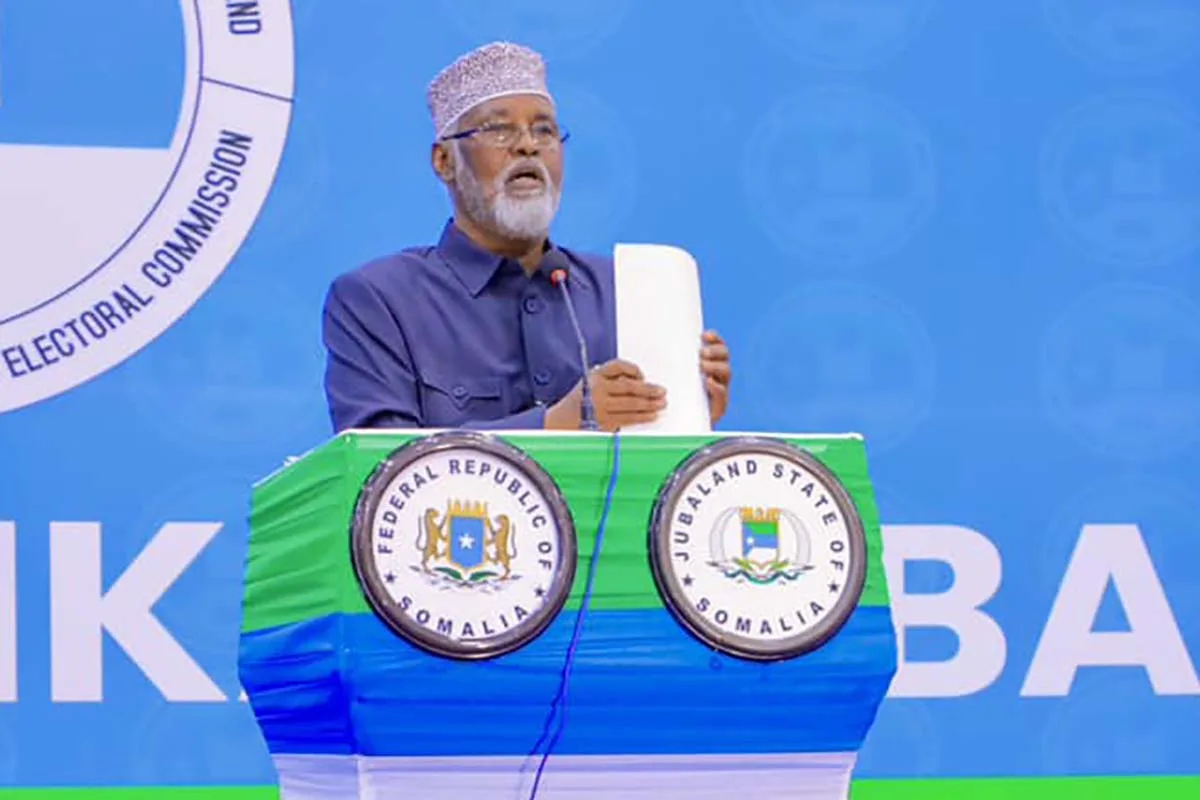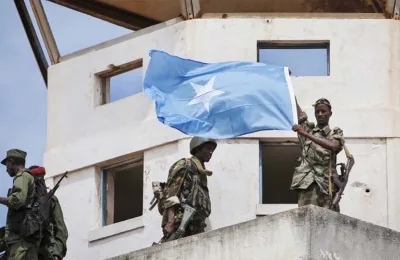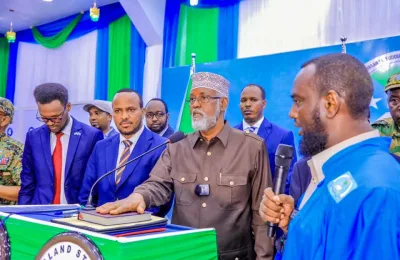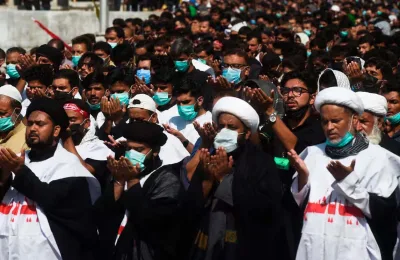The election follows a controversial amendment to the Jubaland State of Somalia Constitution.

Ahmed Mohamed Islam (Madobe) has secured his third term as President of Jubaland, winning the election in a single round of voting held by the regional parliament on November 25, 2024.
Madobe, who has led Jubaland since its establishment in 2012, garnered 55 votes from the 75-member House of Representatives, significantly outpacing his challengers. His nearest competitor, Faysal Omar Mataan, received 16 votes, while Abuukar Abdi Hassan secured 4 votes.
The election follows a controversial amendment to the Jubaland Constitution, which previously limited presidents to two terms. The modification not only removed term limits but also extended the presidential term from four to five years, paving the way for Madobe’s continued leadership.
The electoral process, however, has drawn scrutiny from Somalia’s Federal Government, which had previously announced it would not recognize the outcome of what it termed a “self-appointed” in Kismayo. This stance reflects ongoing tensions between regional and federal government over electoral processes and autonomy.
The timing of the election has also been contentious. While the Federal Government, under President Hassan Sheikh Mohamud, had proposed extending regional elections until November 2025 to align with plans for a one-person, one-vote system, Madobe’s administration proceeded with the parliamentary election against these wishes.
“We are ready to negotiate with the Federal Government on the fate of the country if they are prepared for dialogue,” Madobe stated following his victory, suggesting an openness to resolving the political impasse.
The election was witnessed by several notable figures, including members of the Federal Parliament representing Jubaland and former Puntland Vice President Abdihakim Amey, lending some legitimacy to the process despite federal opposition.
This latest political development follows a pattern of complex relations between Jubaland and the central government. In 2019, similar tensions emerged when the then-federal government under President Mohamed Abdullahi Farmajo opposed Madobe’s previous election, leading to an air embargo that was only lifted following a 2020 agreement.







